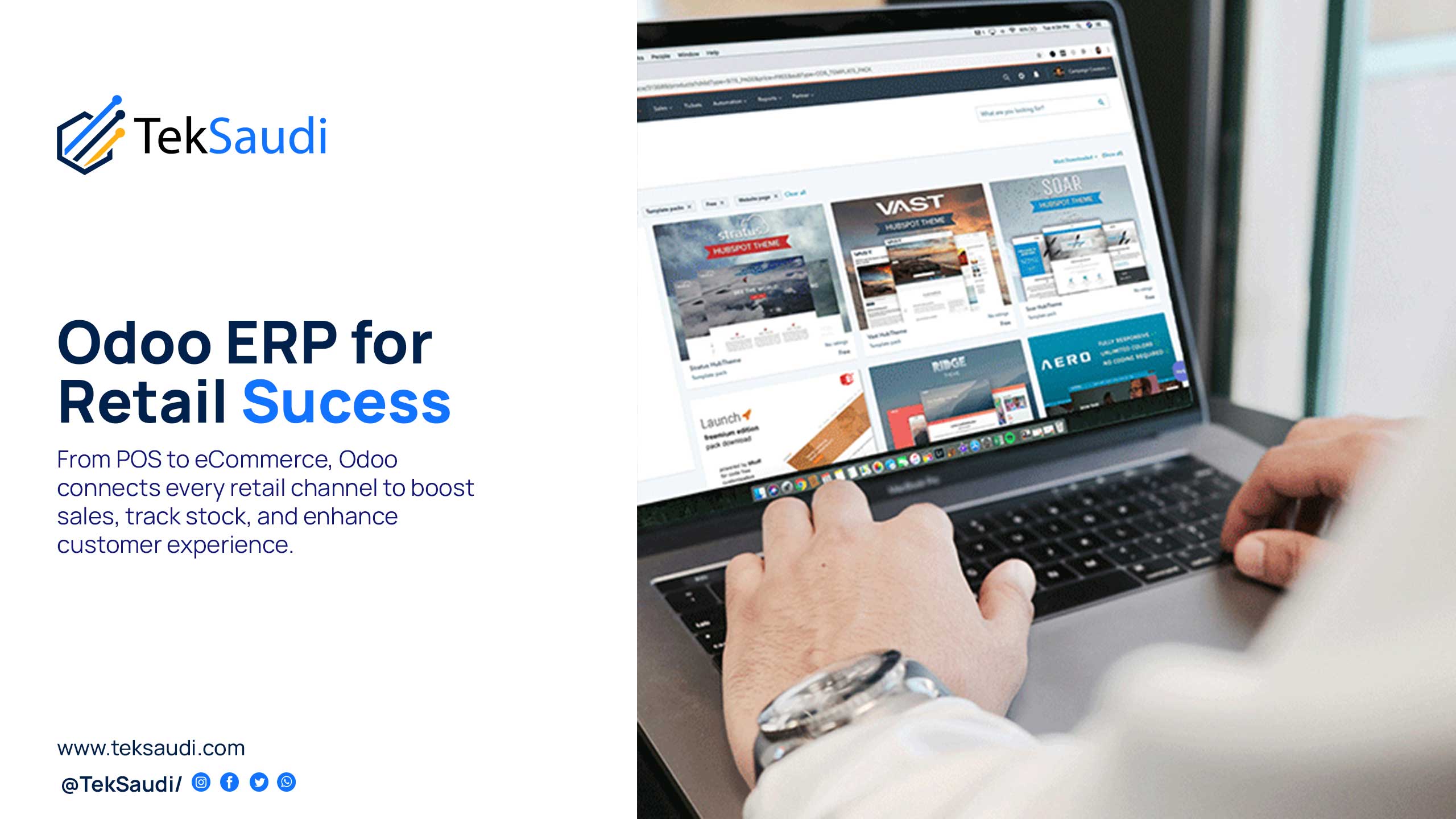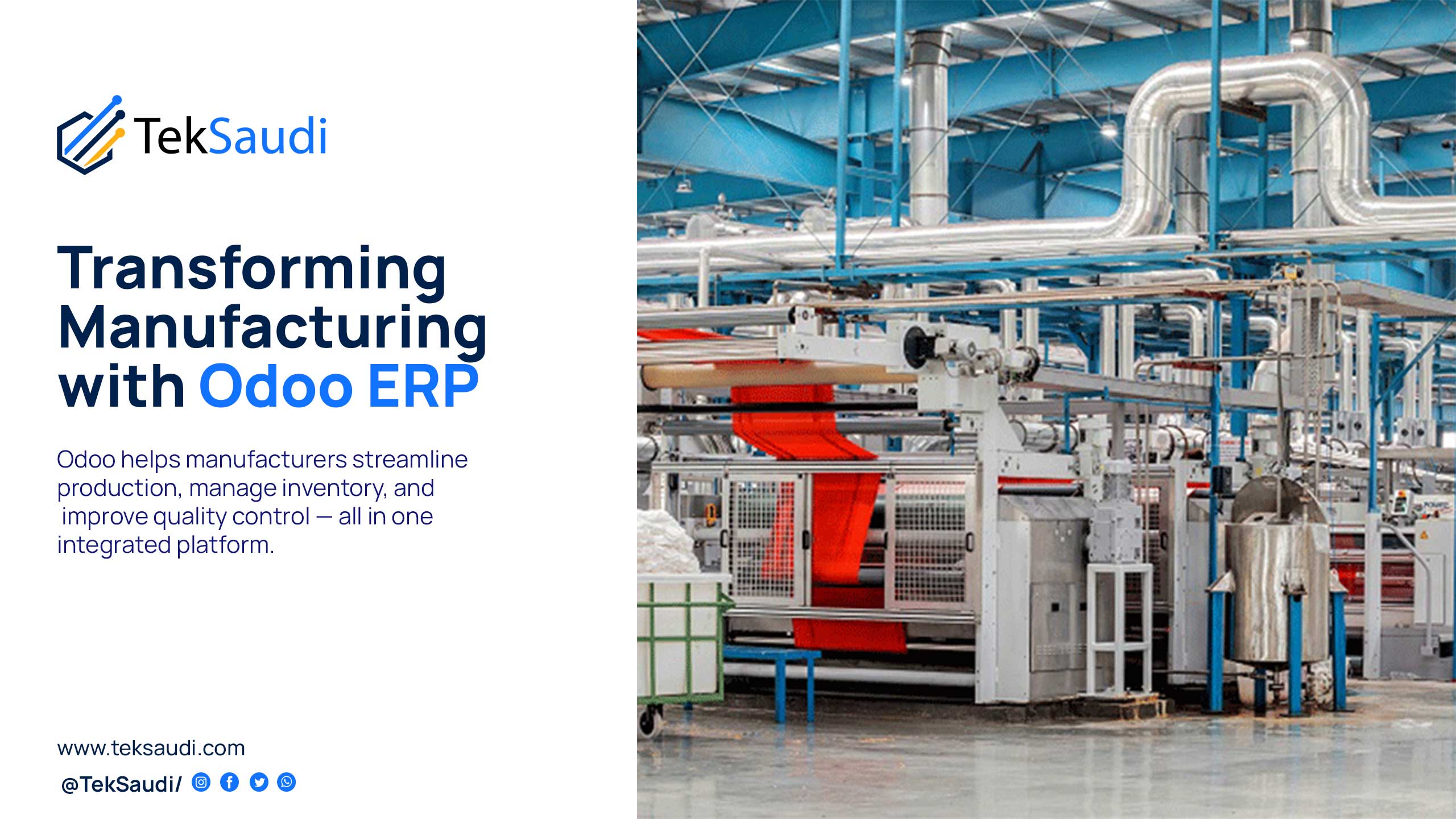Odoo in Healthcare: A Smarter ERP Introduction Healthcare providers face growing pressure to manage patient care efficiently while complying with regulations and controlling costs. Legacy systems often fall short, leading to inefficiencies and data silos. Odoo offers a flexible ERP solution tailored for the unique needs of the healthcare industry. This blog explores the benefits and implementation process of Odoo for healthcare organizations. Why Odoo is a Game-Changer for Healthcare Key advantages include: Essential modules for healthcare: Book a Odoo Demo Healthcare Challenges Addressed by Odoo Step-by-Step Odoo Implementation for Healthcare Step 1: Requirement Analysis Step 2: System Design & Planning Step 3: Configuration & Customization Step 4: Data Migration & Testing Step 5: Training & Go-Live Benefits of Odoo in Healthcare Conclusion Odoo ERP is proving to be a powerful tool for healthcare providers looking to modernize and integrate their operations. With careful implementation, it enables higher efficiency, better care delivery, and compliance in a rapidly evolving industry. Tek Saudi – Your Trusted Odoo ERP Service Provider Tek Saudi – Your trusted partner for Odoo ERP implementation, customization, and support services tailored to streamline your business operations. Odoo ERP Implementation Services Odoo Development Services Odoo Customization Services Odoo Integration Services Odoo Support Services Odoo Consulting Services Odoo Training Services
Odoo ERP for Retail Success
Introduction In the dynamic world of retail, managing inventory, customer relationships, and sales across multiple channels can be challenging. Retailers need a system that connects physical stores, online platforms, warehouses, and customer data in one place. Odoo ERP is designed to do just that. In this blog, we’ll explore how Odoo empowers the retail industry and how to implement it effectively. Get all the insights why odoo ERP for retail business is important. Why Odoo is Ideal for Retailers Odoo offers an all-in-one retail management solution, with key features such as: Point of Sale (POS) system Integrated eCommerce and website builder Inventory management CRM and customer loyalty tools Sales and accounting automation Popular Odoo modules for retail include: Point of Sale (POS) Sales Inventory eCommerce Accounting Marketing Automation Book a Odoo Demo Common Challenges in Retail Solved by Odoo Stock mismatches between channels Lack of customer purchase insights Manual sales reporting Difficulty in managing loyalty programs Disconnected online and offline sales systems Step-by-Step Odoo Implementation Guide for Retail Step 1: Requirement Analysis Analyze sales channels (online/offline) Define key business goals Understand customer journey and expectations Step 2: System Design & Planning Choose modules for POS, eCommerce, CRM, etc. Plan multi-location inventory setup Create implementation roadmap Step 3: Configuration & Customization Configure POS terminals and payment gateways Customize loyalty programs, coupons, and discounts Design storefront and product pages Step 4: Data Migration & Testing Migrate customer, product, and sales data Test POS, inventory sync, and online orders Ensure performance and fix bugs Step 5: Training & Go-Live Train retail staff and customer service teams Monitor transactions and stock levels post-launch Provide technical and user support Post-Implementation Benefits for Retailers Unified view of inventory and sales Real-time reporting and analytics Improved customer engagement and loyalty Reduced operational overhead Post-Implementation Benefits for Retailers Unified view of inventory and sales Real-time reporting and analytics Improved customer engagement and loyalty Reduced operational overhead Conclusion Odoo ERP provides retailers with a unified, flexible solution to manage both in-store and online operations. A step-by-step implementation ensures a smooth transition, helping businesses deliver exceptional customer experiences and scale with ease. Tek Saudi – Your Trusted Odoo ERP Service Provider Tek Saudi – Your trusted partner for Odoo ERP implementation, customization, and support services tailored to streamline your business operations. Odoo ERP Implementation Services Odoo Development Services Odoo Customization Services Odoo Integration Services Odoo Support Services Odoo Consulting Services Odoo Training Services https://youtu.be/QZFhUnZqJUA?si=EWHq4QFswZSb0tdC Disconnected online and offline sales systems Step-by-Step Odoo Implementation Guide for Retail Step 1: Requirement Analysis Analyze sales channels (online/offline) Define key business goals Understand customer journey and expectations Step 2: System Design & Planning Choose modules for POS, eCommerce, CRM, etc. Plan multi-location inventory setup Create implementation roadmap Step 3: Configuration & Customization Configure POS terminals and payment gateways Customize loyalty programs, coupons, and discounts Design storefront and product pages Step 4: Data Migration & Testing Migrate customer, product, and sales data Test POS, inventory sync, and online orders Ensure performance and fix bugs Step 5: Training & Go-Live Train retail staff and customer service teams Monitor transactions and stock levels post-launch Provide technical and user support Post-Implementation Benefits for Retailers Unified view of inventory and sales Real-time reporting and analytics Improved customer engagement and loyalty Reduced operational overhead Post-Implementation Benefits for Retailers Unified view of inventory and sales Real-time reporting and analytics Improved customer engagement and loyalty Reduced operational overhead Conclusion Odoo ERP provides retailers with a unified, flexible solution to manage both in-store and online operations. A step-by-step implementation ensures a smooth transition, helping businesses deliver exceptional customer experiences and scale with ease. Tek Saudi – Your Trusted Odoo ERP Service Provider Tek Saudi – Your trusted partner for Odoo ERP implementation, customization, and support services tailored to streamline your business operations. Odoo ERP Implementation Services Odoo Development Services Odoo Customization Services Odoo Integration Services Odoo Support Services Odoo Consulting Services Odoo Training Services https://youtu.be/QZFhUnZqJUA?si=EWHq4QFswZSb0tdC
Transforming Manufacturing with Odoo ERP
Transforming Manufacturing with Odoo ERP Introduction In today’s competitive manufacturing landscape, operational efficiency, cost control, and real-time data tracking are critical to success. Traditional ERP systems often fall short due to their complexity and high cost. Enter Odoo – a flexible, modular ERP solution that is transforming manufacturing operations around the world. In this blog, we’ll explore how Odoo can streamline manufacturing processes and walk through a practical, step-by-step implementation guide tailored for manufacturers. Get all insights why Odoo ERP for Manufacturing is important to automate the complete industry. Why Odoo ERP for Manufacturing? Odoo stands out as an ERP choice for manufacturing companies due to its: Popular Odoo modules for manufacturers include: Book a Odoo Demo Challenges Odoo Solves in Manufacturing With Odoo, all departments are connected, allowing manufacturers to automate and optimize processes from production to delivery. Step-by-Step Implementation Guide for Manufacturers Step 1: Requirement Analysis Step 2: System Design & Planning Step 3: Configuration & Customization Step 4: Data Migration & Testing Step 5: Training & Go-Live Benefits After Implementation Conclusion Manufacturing businesses can gain a serious competitive advantage with Odoo ERP. By following a structured implementation plan, manufacturers can move from manual processes to streamlined, automated operations that scale with growth. Tek Saudi – Your Trusted Odoo ERP Service Provider Tek Saudi – Your trusted partner for Odoo ERP implementation, customization, and support services tailored to streamline your business operations. Odoo ERP Implementation Services Odoo Development Services Odoo Customization Services Odoo Integration Services Odoo Support Services Odoo Consulting Services Odoo Training Services



